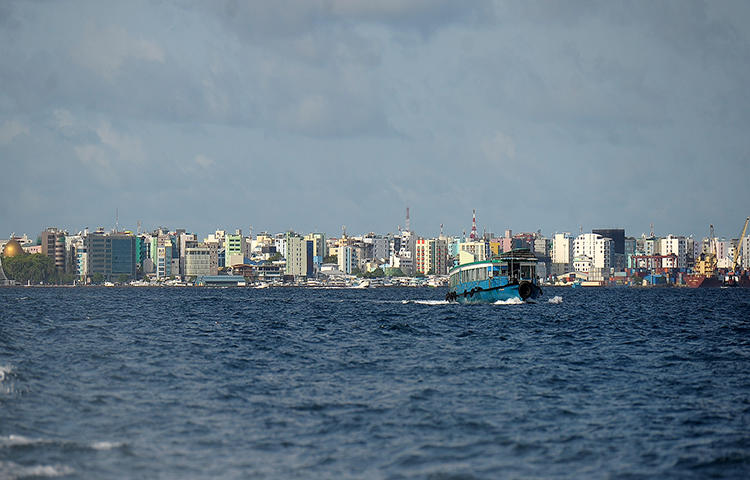New York, February 5, 2018–The Committee to Protect Journalists today called on Maldivian authorities to stop threatening and harassing news outlets and allow them to operate freely. An opposition-aligned TV station and independent news website have come under threat of closure and cyberattack, respectively, amid an escalating political crisis.
“Authorities in the Maldives must immediately stop trying to exert control over the media and access to information,” said Steven Butler, CPJ’s Asia Program Coordinator in Washington D.C. “The Maldives should abide by its constitutional commitment to the freedom of speech.”
On Monday, President Abdullah Yameen declared a state of emergency for 15 days, and soldiers broke into the Supreme Court, according to news reports. Last week, the Supreme Court ordered the release of opposition political leaders, which the attorney general and the ruling party have refused to do. Exiled former President Mohamed Nasheed was named by the court as having had an unfair trial.
The Maldives Broadcasting Commission on Friday warned media stations they could face closure if they were deemed a threat to national security, incited unrest with false information or endangered the public interest, according to news reports.
The online news site Maldives Independent said that its website was under cyberattack today, and that it believed the attack was “designed to coincide with the state of emergency,” which the government declared today.
Separately, Abdul Raheem Abdulla, the vice-president of the ruling Progressive Party of Maldives, yesterday called on security forces to shut down the opposition-aligned Raajje TV for sowing “discord,” according to news reports.
Raajje TV tweeted today that its shutdown was “imminent,” and that they will “continue to work” until the “last minute.” The broadcaster reported that members of a pro-government rally made calls to burn down the outlet’s office and threw rocks at Raajje TV journalists at the scene.
Police were posted to the station after the country’s ruling party made threats to shut down Raajje TV, but the guards had left by Sunday evening, according to the broadcaster.
Additionally, the Maldives’ ruling party excluded certain outlets, including Raajje TV, from attending its press briefings yesterday and on February 3, according to news reports.
CPJ did not receive an immediate response to an email query sent to Ahmed Arshad Ali, the Maldives Broadcast Commission information officer.
In a statement, Raajje TV said the calls for its closure were “regressive, and alien to democracy and democratic values.”
CPJ’s phone calls to the Maldivian president’s office went unanswered.
The Maldives Independent also reported that police questioned journalists at the news website Avas and the online newspaper Mihaaru after the outlets published statements issued by the jailed former vice president, Ahmed Adeeb.
The Maldives Correctional Service on January 30 threatened legal action against media outlets that published prisoner statements, according to the Maldives Independent. The correctional service did not immediately respond to CPJ’s request for comment via email.
